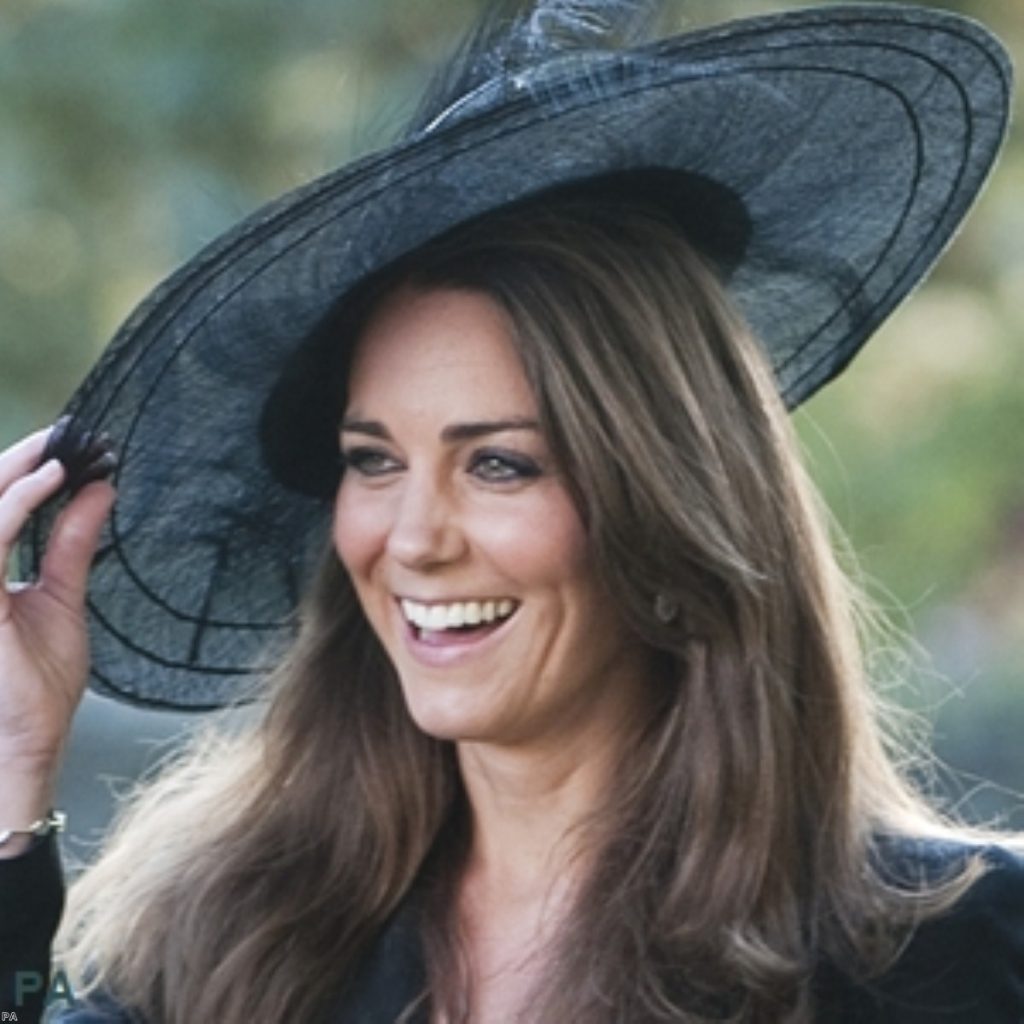Royal baby: Sarcasm dominates as Kate enters labour
Politicians are showing troubling signs of struggling to cope with the tension as the royal baby's birth approaches.
A clutch of sarcastic tweets from Westminster-watchers greeted the news from Kensington Palace that the Duchess of Cambridge has entered the early stages of labour.
Meral Hussein-Ece, a Liberal Democrat peer, tweeted: "This media obsession with the royal baby is ridiculous. It's just a woman having a baby FGS [for God's sake]."
Conservative backbencher Chris Heaton-Harris expressed concern that he might not win the royal baby name sweepstake, having picked out Latifah for a girl and Kong for a boy.


And fellow Tory Graham Evans pointed out that home secretary Theresa May, unlike many of her predecessors, will not be required to be present at the birth.
The tradition, originally upheld to ensure the baby was not a substitute, has not been thought necessary since Princess Alexandra, the present Queen's cousin, was born in 1936.
Not all political parties will be following the story as carefully as others, as a recent poll by Ipsos Mori uncovered significant differences in their attitudes to the monarchy.
The Conservative party is, unsurprisingly, firmly royalist. Ninety-five per cent favour a monarchy over a republic – even more than Ukip, which is 85% monarchist.
Liberal Democrats have become more pro-royal, with 87% now backing a monarchy. This is a significant difference from 2006, when only two-thirds supported a monarchy.
Labour remains the most republican party, with 25% favouring an end to the monarchy for good. Just 69% believe a monarchy is the better option for Britain.
Arcane constitutional news: Something to keep us busy
Most royal watchers have not realised the baby's position in the line of succession will not be affected by its gender.
As the eldest child to Prince William, himself the second-in-line as the son of Prince Charles, the royal baby will be next in line regardless of whether it is a boy or girl.
It is only if the child is female, and the subsequent child of Prince William and the Duchess of Cambridge is male, that the coalition's efforts to abolish primogeniture come into play.
The Succession to the Crown Act 2013 is already law in Britain but must be accepted by all 15 Commonwealth states.
"The UK government hopes and expects that all the realms will have come into line in the next six to 12 months, so the new law should have come into force by the time of the birth of any second child," UCL's Constitution Unit director Robert Hazell said.
If agreement is not reached, different parts of the Commonwealth could end up having different heads of state.
It has happened before. In the 19th century Queen Victoria's reign was rejected by Hanover, which refused to accept a female monarch.
This media obsession with the royal baby is ridiculous. Its just a woman having a baby FGS.
— Baroness Hussein-Ece (@meralhece) July 21, 2013
#RoyalBabyWatch Up until 1936 the Home Secretary attended all royal births. The tradition was stopped for Prince Charles.
— Graham Evans MP (@GrahamEvansMP) July 22, 2013
Is it the law that all journalism today must include reference to royal baby? Am wondering because am just finishing blog on audit reform
— Robert Peston (@Peston) July 22, 2013
Everyone: "Royal baby!" Ed Miliband: "B-b-b-but Lynton Crosby?"
— James Manning (@JamesManning4) July 22, 2013
Don't think I'll win the Royal Baby name sweepstake. Picked out Latifah for a girl and Kong for a boy. #allthebestKate
— Chris Heaton-Harris (@chhcalling) July 18, 2013
Great to hear the Duchess of Cambridge has gone into labour. Is she an affiliated member? #boomtish #royalbaby
— John Prescott (@johnprescott) July 22, 2013












